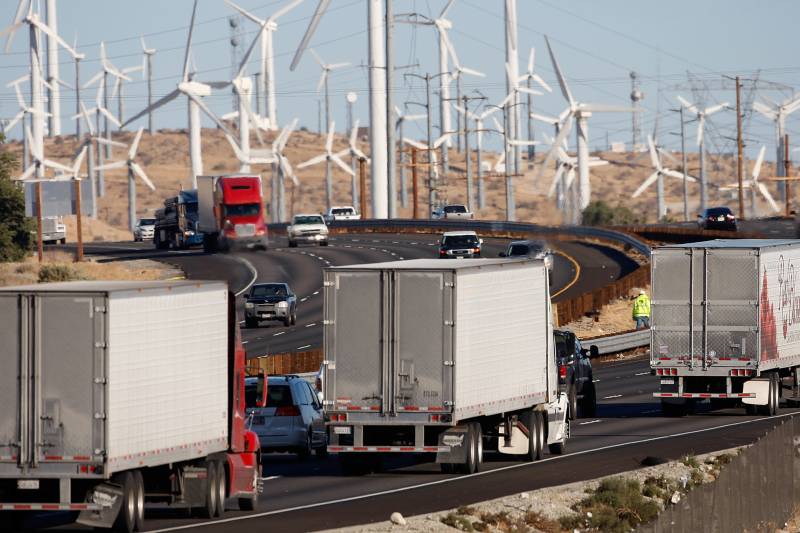Jed Mandel, president of the manufacturing association, said in a statement that the agreement is evidence of the group’s “commitment to reducing emissions and to a zero-emissions commercial vehicle future.”
He touted it as an example of industry and California’s air regulators working together, although truck makers had previously fought these clean truck rules.
Mandel’s manufacturers association and several truck companies, including Volvo, Daimler Truck, Volkswagen and PACCAR, had opposed clean truck rules on the federal and state level while they were publicly promoting zero-emissions fleets, KQED’s Laura Klivans reported.
Sasan Sadaat, a senior researcher and policy analyst with the environmental law organization Earth Justice, said the manufacturing association has for years actively fought against clean trucks in California and across the country.
“At every turn, whether it’s the Advanced Clean Truck rule, the Advanced Clean Fleets rule, the Heavy Duty NOx rule, challenging California’s authority to pass its own regulations, countering the stringency of EPA’s regulations, they’ve been the greatest barrier to more ambitious rules in slashing air pollution from trucks.” he said. “That’s their record.”
As part of the new agreement, California will adopt some of the federal Environmental Protection Agency’s less-strict rules on nitrogen oxide emissions and provide several years of lead time before passing new regulations.
